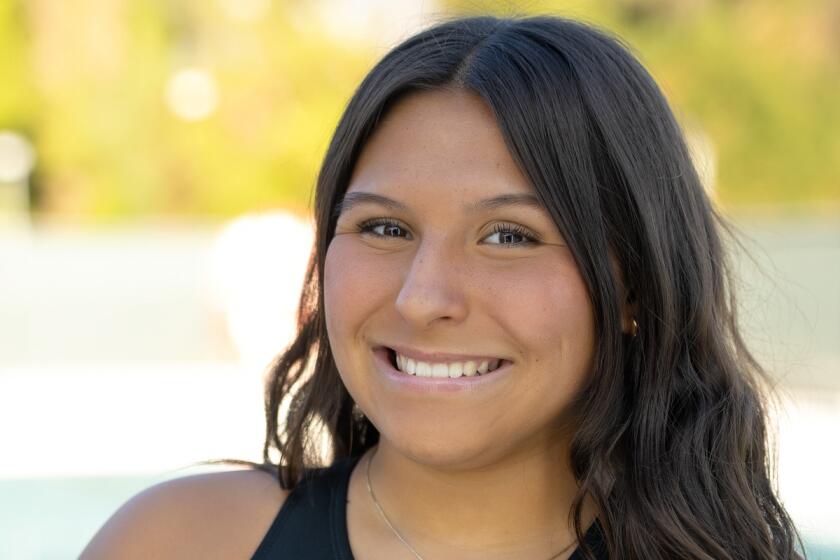Chargers, Raiders add heavy hitter Carmen Policy to Carson stadium bid
- Share via
In a move that adds muscle to their joint pursuit of a football stadium in Carson, the San Diego Chargers and Oakland Raiders have hired a heavyweight in the world of NFL politics.
The teams have enlisted the services of Carmen Policy, former president of the San Francisco 49ers and Cleveland Browns, and he will spearhead the push for the proposed $1.7-billion venue.
“I understand the league,” said Policy, 71, whose last formal involvement with the NFL ended in 2004 when he sold his minority ownership stake in the Browns. “Even though I’ve been gone for awhile, the dynamic within the room is basically the same, although many of the faces have changed.”
Policy, who still commands considerable respect among NFL owners, is expected to speak to them at the May meetings, which take place Tuesday and Wednesday at the Ritz-Carlton Hotel in San Francisco.
Backers of the two competing stadium proposals — the other being the Inglewood project of St. Louis Rams owner Stan Kroenke — will give the membership brief updates on their plans and progress in their home markets. League staff also will make a presentation.
In hiring Policy, the Chargers and Raiders were aiming for someone who could be a singular face and voice for the proposal, one they are simultaneously pursuing while independently trying to strike stadium deals in their cities.
The NFL has used Policy in its L.A. dealings before. In 1994, then-commissioner Paul Tagliabue appointed Policy and owners Jerry Richardson (Carolina) and Pat Bowlen (Denver) to negotiate on behalf of the league for the Raiders to play in a proposed Hollywood Park stadium. That deal fell through at the last minute, and owner Al Davis moved the Raiders back to Oakland.
In the years that followed, Policy served on several of the league’s L.A. committees.
Both of the proposals have their strengths and weaknesses, and both sites are entitled for stadiums.
Kroenke is the league’s second-richest owner — he has nearly 300 acres to work with on the site of the former Hollywood Park racetrack — and his Rams have a deep and nostalgic connection to the Los Angeles market.
The Chargers and Raiders have countered with a plan to build on a 168-acre site that wouldn’t have the same type of ancillary retail and housing development as Kroenke’s proposal. The site is a former landfill that would require additional cleanup work, and the clubs are still in the process of buying the land (although they say they are within days of closing that deal.).
Where the Chargers and Raiders have an advantage is that theirs are the NFL’s two worst stadium situations, whereas St. Louis appears more willing to spend public funds to keep its team than San Diego or Oakland do.
On Monday, a mayoral task force aimed at keeping the Chargers in San Diego unveiled a financing plan for a $1.1-billion stadium. That proposal calls for $300 million from the Chargers, $200 million from the NFL, $173 million in construction bonds, $121 million from the city of San Diego and $121 million from San Diego County.
Policy said a stadium in Carson would be a “silver-bullet solution” for two bad stadium situations.
“I think the league is really committed to having two teams in the Los Angeles market,” he said. “Especially when they have two of their teams in the largest state in the union, in the worst facilities, one of which [the Raiders] are at the bottom of the competitive ladder from a financial standpoint.
“So with one great financial commitment, you’re solving two problems for two teams that were born in California and are staying in California.”
Policy, who has spent the better part of the past decade living on and developing his Casa Piena vineyards in Yountville, said he only took on this challenge because he believes the Carson proposal has a good chance of coming to fruition. He has five Super Bowl rings from his days with the 49ers, with the first coming when he was the personal attorney to then-owner Eddie DeBartolo, and the next four when he was the franchise’s top executive.
“I believe Carson is a great site,” he said. “I don’t want to have the whistle blow at the end of this game and lose.”
Twitter: @LATimesfarmer
More to Read
Go beyond the scoreboard
Get the latest on L.A.'s teams in the daily Sports Report newsletter.
You may occasionally receive promotional content from the Los Angeles Times.











